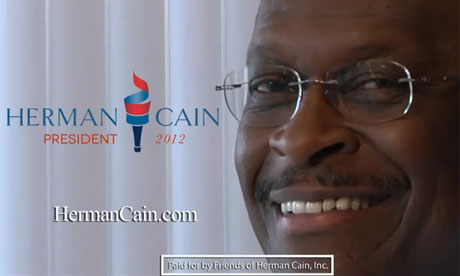
Well, I went and did it. I sat down and gave a listen to Mitt Romney's speech to the GOP convention from last week. I hadn't found the time to give it a fair airing to my mind until this past weekend. (It was a busy week, last week.) So forgive me if I'm posting on the topic of old news.
I guess I have to say Romney's acceptance of the nomination wasn't a bad speech, all in all. I think it sounded the right sonics for the candidate as he moves into final campaign mode. There was a decent mixture of platitude and stirring stuff. I'll grant that and, smartly, at least at first, he toned down some of the Obama bashing and affected a more measured respectful —and potentially presidential— tone. With any election that involves challenging an incumbent, one of the things you have to allow for —and even actively pursue — is winning the support of voters who supported your opponent the last time out. Blaming them for voting in a guy who hates God and freedom and doesn't even understand what being an American is —well, let's say that's something of a hard place to do that from. Romney's speech at its core was about making that path from a vote for Obama in 2008 to a different place this year.
[As aside, I've always thought one of the things that cost John Kerry in '04 was the implicit message of his campaign that only a completely ignorant bigot and utter fool could ever have supported his opponent.]
So it was that instead of the usual harangue, Romney posed the picture of an America that had come to together despite party differences and with good wishes for the new president as he set out upon his term of office these three and a half years ago. We all wished the president well, Candidate Romney recalled, that's just the way we are —we wanted him to succeed as we wanted America to succeed —it's only fair if we're disappointed with him now...
Luckily, I was seated far enough away from my computer as I heard this that I managed not to spray the machine's delicate circuitry with the coffee that came spewing from my mouth and nose. I gasped at the notion: Wished him well? Wanted him to succeed? This from the same man who in January of 2009 —about, oh, a little over one week into the Obama administration— was complaining that he shouldn't be expected to support "failed policies" —the same political party whose Senate Leader announced at the very dawn of the administration that his 'number one priority' was going to be seeing to it that Barack Obama serves but a single term.
Succeed... ha.
But I suppose I shouldn't complain. Even the suggested conceit that this cooperative atmosphere once existed might be somehow useful. It could be the seedling sense that it could happen one day... "again." Could this be Romney's... hope? (Not that he'd ever use the term) at least if he's elected anyway?
Actually this word "success" has been turning in my own little stone tumbler of a skull ever since I watched Romney's speech (and wiped off my desk). There came another telling moment for me in the candidate's speech, it was when he let into President Obama for somehow being against success. Romney had given a brief listing (somewhat selective some might argue) of the "success stories" he could tell about his years at Bain Capital."These are American success stories," Romney said. "And yet the centerpiece of the President's entire re-election campaign is attacking success. Is it any wonder that someone who attacks success has led the worst economic recovery since the Great Depression? In America, we celebrate success, we don't apologize for it."
I'm going to go out on a limb here and posit that President Obama doesn't dislike, attack or apologize for success in itself. We could maybe argue over whether he too much dislikes, attacks and would feel awfully sorry to see Mitt Romney succeed at getting elected president, but that's another discussion I think. I'm wondering if maybe what is really at issue between our two candidates and their political parties, is how we define that term —success. The President doesn't attack or apologize for success, but he does challenge the selective narrative of Mitt Romney's "success stories." Should the same definition of success that a CEO uses in the corporate boardroom serve for the President of The United States? Do the Community Organizer and The CEO have different and equaly valid definitions for us to work with? Should we figure out how to best combine them?
That might be a discussion worth having.
Just maybe the problem of defining success cuts right to the heart of the matter. The bottom line is something we all have to be aware of, but a true accounting of whether that bottom line describes a success or failure —a moving forward or a sliding back— involves seeing it from the perspective of the whole, not the individual player —or even your team in the contest. The short term profit taking that dismantles and outsources industrial capacity might score as a success and a profit on the level of an investor transaction, while bearing only cost to the men and women who worked in that industry, to the communities formed by those men and women, to the society that had made a place for that work. Romney rightly remarked that pursuing success in business involves investing effort and taking risks and even accepting the occasional failure. But what I question is whether he sees beyond the loss that you enter in a ledger, that you shrug off in the working balance —or view philosophically as 'creative destruction'— to the loss that cuts deeper than that. I wonder if he has an answer for the whole, both those who profit and those who lose. To ask such a question isn't to attack success in general or even Mitt Romney in particular. It's to pose a challenge I want to see him meet, successfully.
Early on in the convention we heard Mitt Romney praised for the hard truths he would tell us —once we elect him president. It seems to me a little something more to this definition of success would be a good place to start. There's got to be more to his success stories than the aura of his estimable wealth —there's just a little complexity to that sweet smell of success. We would be remiss if we didn't sniff at it just a little.






















